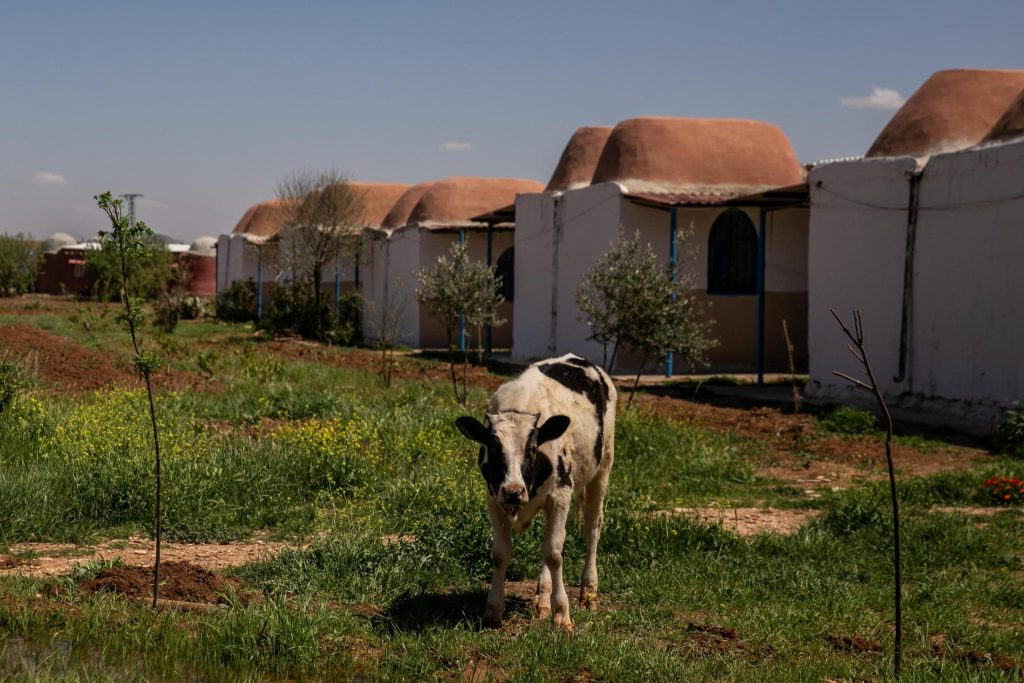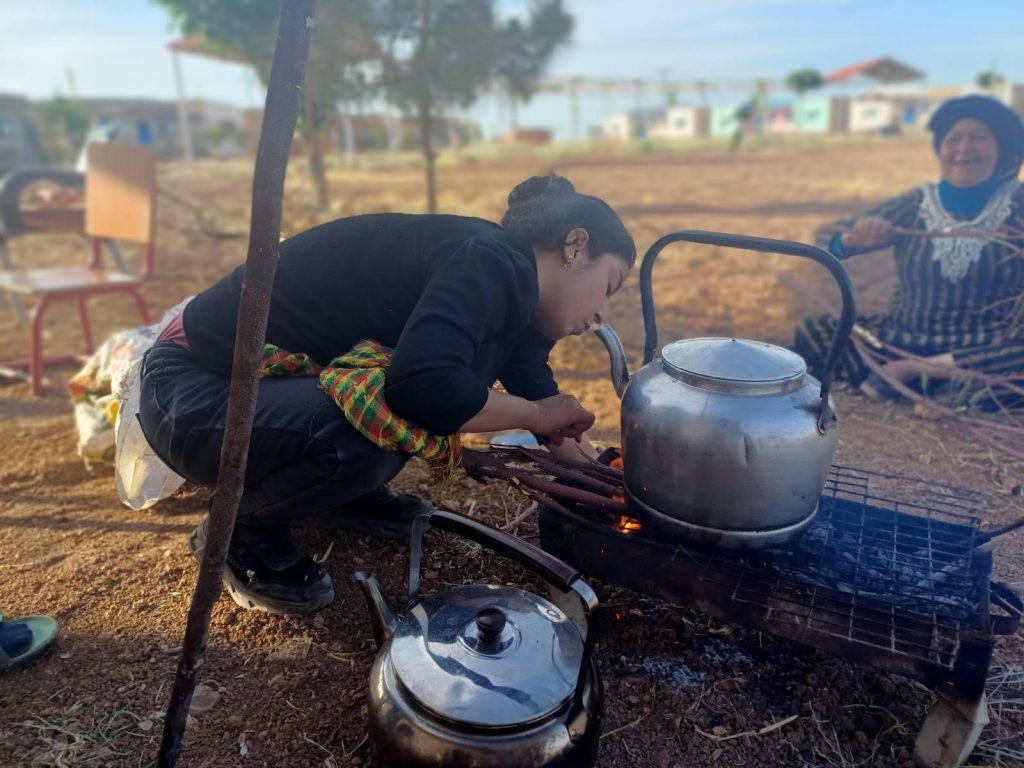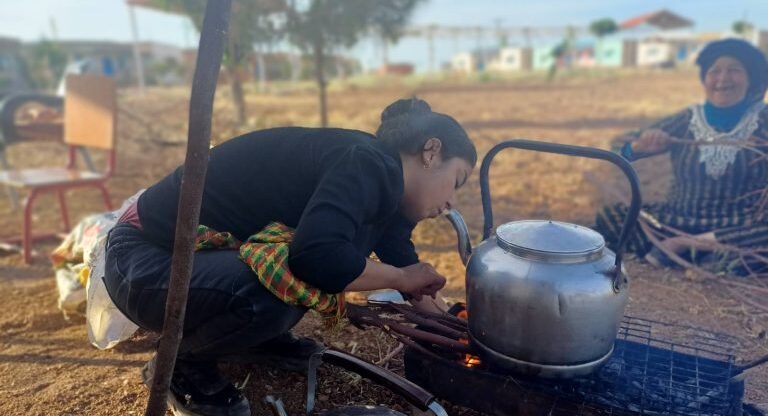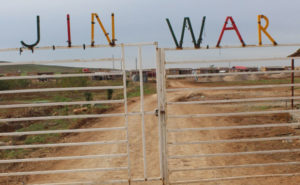“When we arrived in Jinwar, women and children came out of their houses to greet us. There was an atmosphere of joy and curiosity – a desire to know each other, our different stories and our shared visions.” Julia, an internationalist describes her arrival in Jinwar, a women’s village in North and East Syria. Jinwar is home to many different women that have decided to join the community for a variety of different reasons. Something that unites all of them is their search for a free life in communality and the wish to learn, to strengthen and develop as women. Some of them have lost their husbands in the war, or others have freed themselves from domestic violence or forced marriage. There are also Yazidi women who have begun a new life here after they were liberated from the enslavement of ISIS.

Jinwar was officially opened on 25th November 2018, but the process of its establishment was a longer journey. The idea of building a women’s village was inspired by proposals of Abdullah Öcalan and discussed for a long time by the Kurdish Women’s Movement. With the 2012 Rojava Revolution, including the establishment of the self-administration and the withdrawal of the Baath regime from most areas these ideas became more realizable. Concrete plans started in 2016 by an initiative of different women organizations – Kongra Star, the Free Women’s Foundation, the Jineolojî Academy and the Martyr Families Council. The land, which had once been confiscated by the state, was initially cultivated after the revolution by an agricultural cooperative of Aboriya Jin (women’s economy committee) and then donated to the project.
In 2017 the construction of the village started. The houses of the village were built in a traditional way by forming bricks out of earth, water and straw. Some of the buildings were decorated with murals showing the spirit and the message of the women’s village. For example the image of Şahmaran as the bearer of an ancient knowledge symbolizes women’s struggle, strength of transformation and wisdom. The building process of this village connects to a long history of women’s struggle in Kurdistan, to the efforts and sacrifices of many women.

“Women are strongly connected with society – they are the ones organizing the basis of life, inventing methods and tools to solve problems in society and creating bonds of solidarity and mutual support. We are getting connected to this role again, organizing our life together, supporting each other and sharing our knowledge with each other.” says Sirîn, a woman currently living in the village. She came as a language teacher to the village. Previously she lived in Qamishlo where she was a school teacher, first under the rule of the Baath regime and then as part of establishing the new education system in the Kurdish mother-language in the system self-administration. Now she is teaching reading and writing, as well as other subjects, to the mothers and children in Jinwar in their own mother-tongues, both Arabic and Kurdish.

The life in Jinwar is based on communal values and principles such as ecology, democratic self-organization, women’s economy, women’s health, education and the building up of a common future. The women share their knowledge about gardening and ecological ways of growing fruits and vegetables. At the same time, their aim is to build a self-sustainable life that offers independence on an economic level. The women of Jinwar are building up a communal economy by working hand in hand with other cooperatives in the region. Furthermore, they run a bakery, a small village store and dry vegetables for the winter which are also sold. All decisions concerning the daily life, activities, new ideas and the village economy are discussed and made in the village council assemblies. The children and the youth have their own assemblies and spokespersons in order to participate in democratic decision making processes.
Connected to the village, is also the health center ŞifaJin (Healing of Women). The natural healing and health center opened in 2020 and has rooms for treatments, consultations, educational work, and the production of natural remedies. The project also includes a garden where medicinal herbs are cultivated. ŞifaJin’s ambulance ensures mobility in urgent cases and the cooperation with women from surrounding villages to collect and share traditional natural healing knowledge in connection with modern knowledge and treatment methods.

“The life in Jinwar is an example for women living and organizing together and finding their strength together. It is a place that shines around the world. Being here and talking to the women here, I really feel freer and hopeful. It is clear, we need more places all around the world like this village. It is our task as internationalists to build up these places everywhere and establish a network of connection between them”, concludes Julia after her visit at Jinwar.
More information and impressions about Jinwar, you can find here or here.



